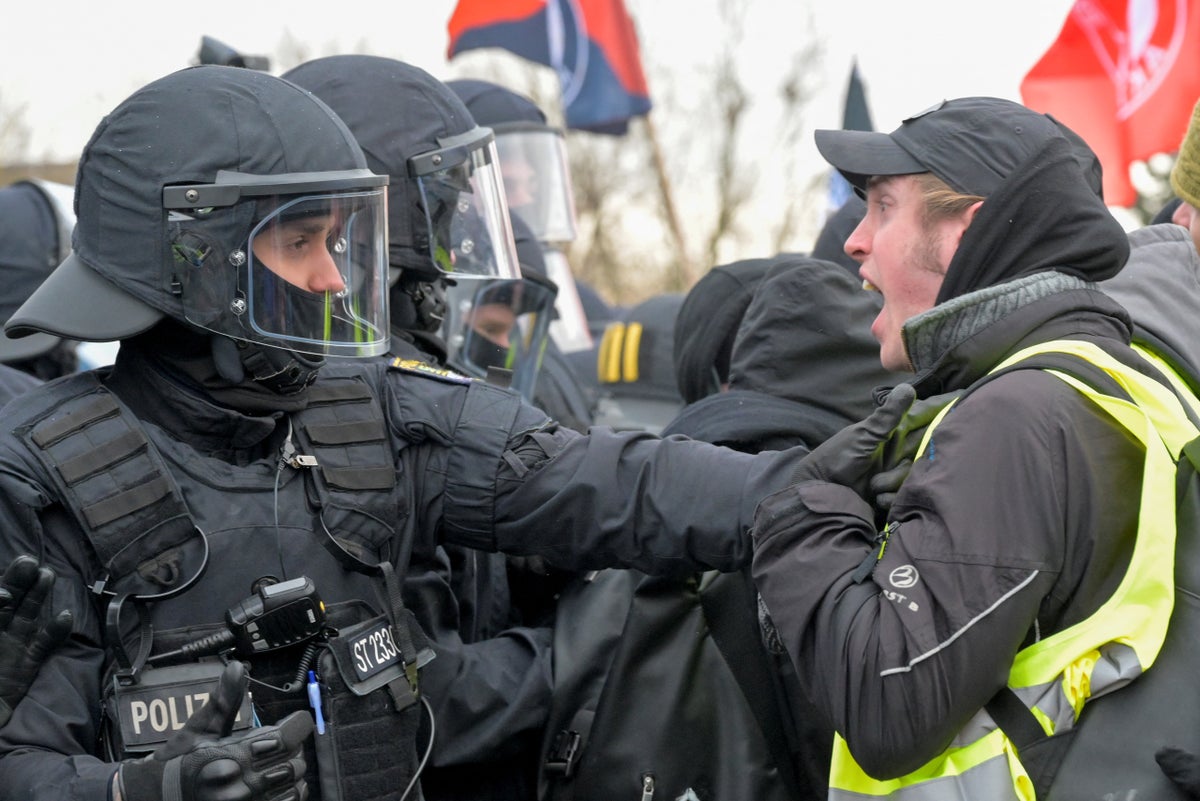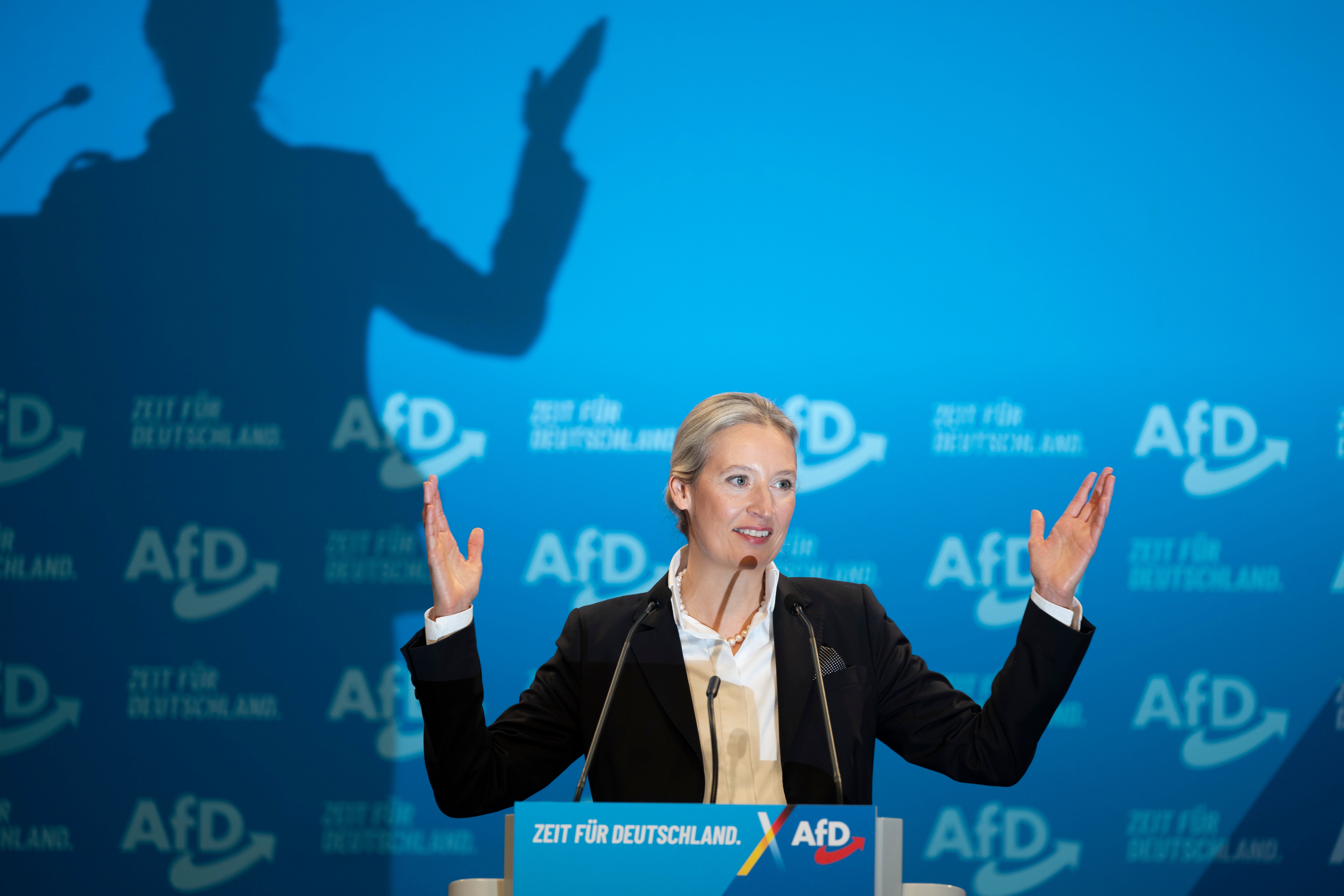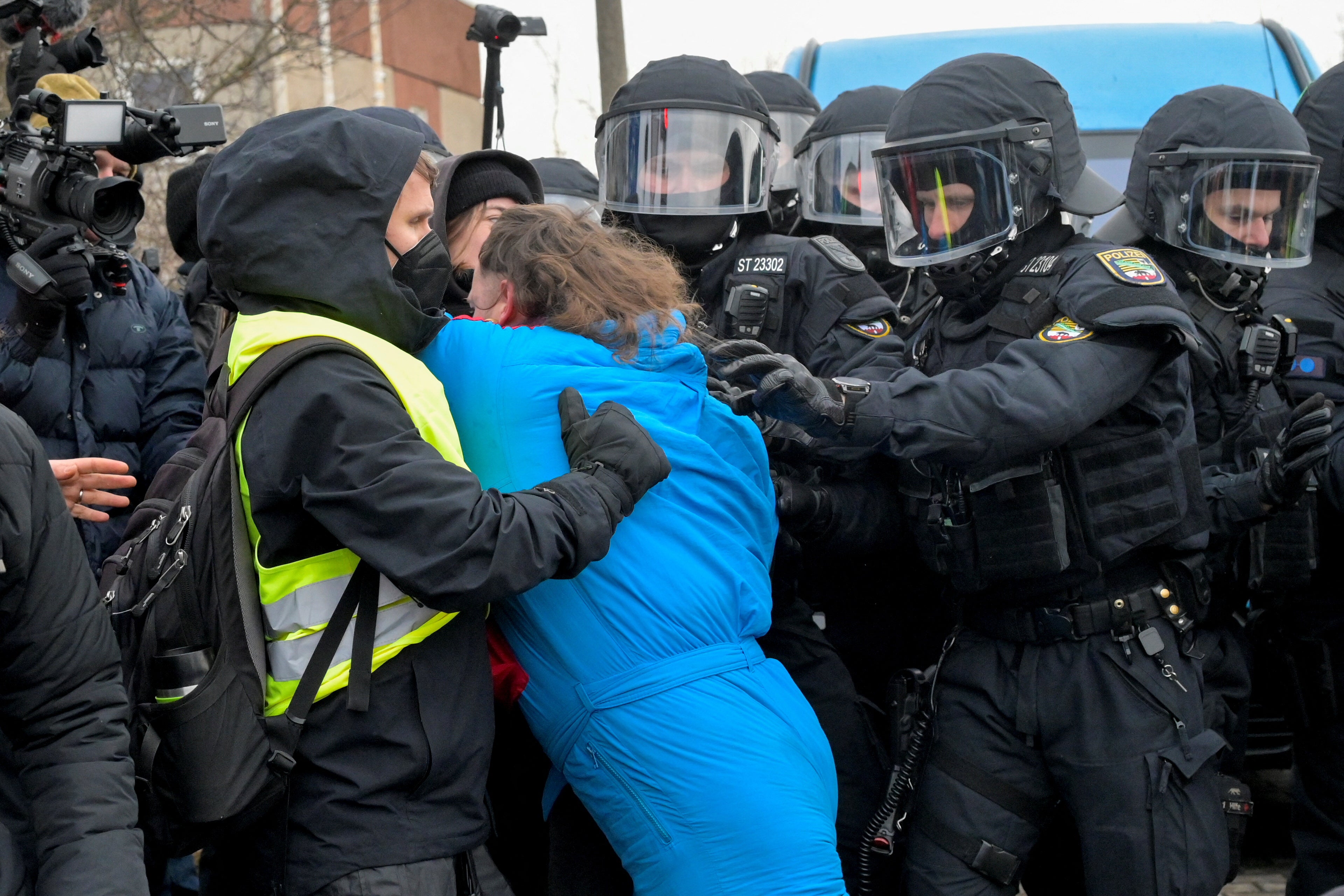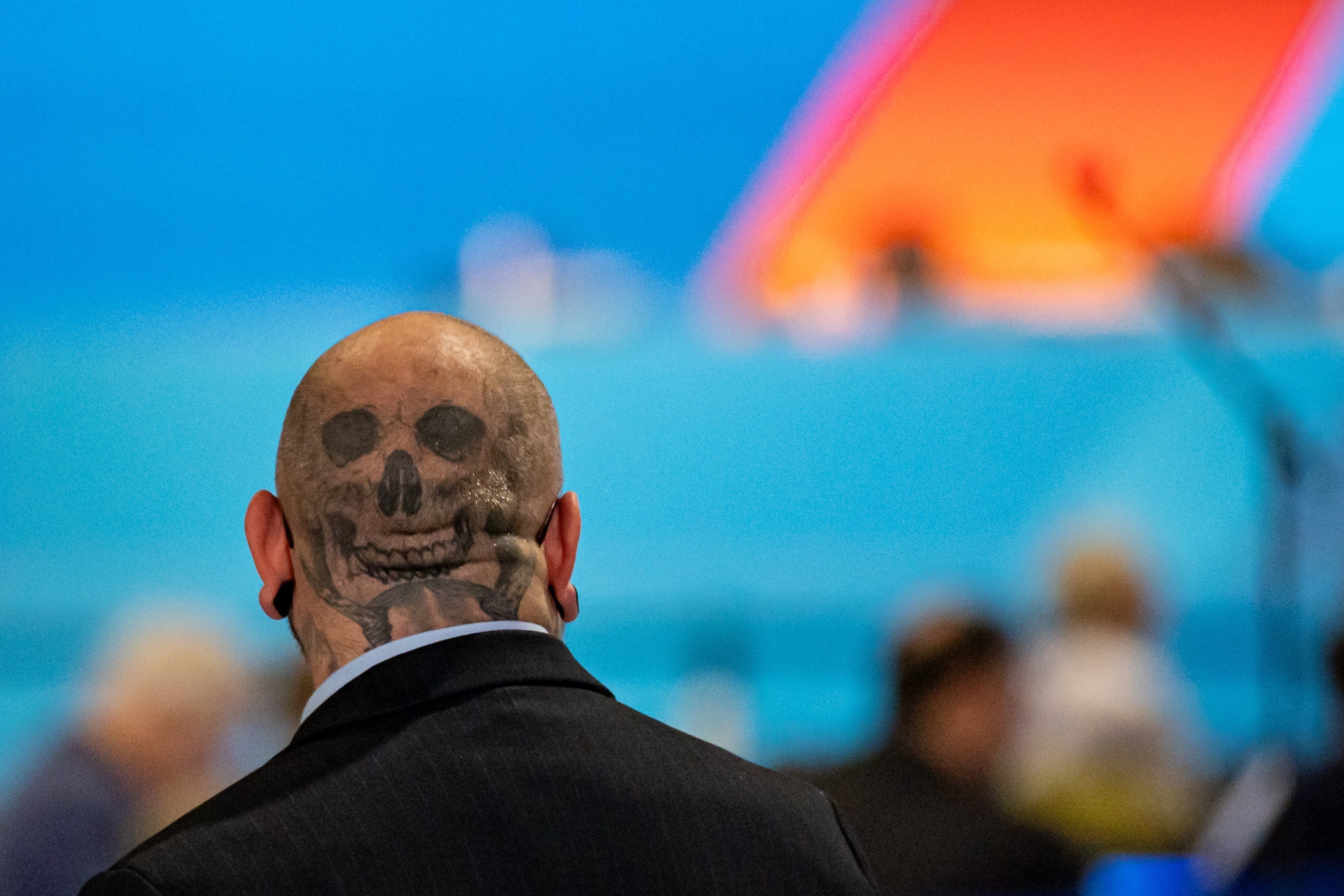
Thousands of people demonstrated against a convention held by the far-right Alternative for Germany (AfD) on Saturday as political parties launched their campaigns for next month’s national election.
A heavy police presence was in place in Riesa – in the eastern state of Saxony, an AfD stronghold – and officers cleared some protesters from the streets.
However, the two-day conference started a little over two hours late as many delegates’ trips to the venue were slowed by blockades. AfD formally nominated co-leader Alice Weidel as its candidate for chancellor. She thanked delegates for “defying the left-wing mob”.
Polls show AfD in second place ahead of the 23 February election, with about 20 per cent support. However, Ms Weidel – who this week held a live broadcast chat with tech billionaire Elon Musk, who has endorsed the party – has no realistic chance of becoming Germany’s leader as other parties refuse to work with AfD.

It is the mainstream conservative opposition Union bloc that leads polls with around 30 per cent and its candidate, Friedrich Merz, is the favourite to become the next chancellor.
The Union is focusing on boosting Germany’s stagnant economy and on reducing irregular migration. Ms Weidel assailed it as a “party of fraudsters” on Saturday, urging people to “vote for the original” and strengthen her party.
She called for the closure of Germany’s borders to undocumented migration and for the large-scale deportations of asylum seekers, making it clear that she has no problem with the politically charged term “remigration”.
She pledged to return to service the Nord Stream gas pipeline that was damaged in 2022 explosions shortly after Russia cut off gas supplies to Germany, and won loud applause for saying that AfD would tear down all wind turbines – which she described as “windmills of shame” – if it came to power.
At a news conference in Hamburg, Mr Merz concentrated on his own party’s offer of “fundamental change” after the unpopular and notoriously rancorous coalition of centre-left chancellor Olaf Scholz collapsed. He said he aims to lead “a government that stops arguing; a government that draws up reliable laws that also endure in the longer term”, producing a reliable environment for domestic and foreign investors. “Then we will have higher potential growth, and then we will have higher actual growth again.”

Mr Scholz is still hoping for a victory despite being behind in the polls, although there has been little sign of significant movement so far in surveys that show support for his Social Democrats at 14 to 17 per cent. His coalition government collapsed in November when he fired his finance minister in a dispute over how to revitalise the economy, leading to an early election.
Mr Scholz conceded on Saturday that mistakes were made and said that “maybe I should also have ended the coalition earlier”. But he said that it’s time to look to the future. “Let’s fight,” he told delegates at a party convention in Berlin, which formally confirmed his nomination as its candidate in a show of hands.
He accused Mr Merz’s Union of having no serious plans to tackle Germany’s problems and said it is making “expensive promises for the absolute top earners” that would “rip a gigantic crater in our budget”.

Mr Scholz, who has made Germany one of the leading weapons suppliers to Ukraine in its war with Russia but refused to send it Taurus long-range cruise missiles, again pledged to maintain his “steadfast and prudent” approach.
And he reiterated his pushback against US president-elect Donald Trump’s recently expressed designs on Greenland and other territories, declaring that “the principle of the inviolability of borders applies to every country, whether it lies to the east of us or the west; every state must keep to this principle, whether it is a small state or a very big and powerful one”.
Mr Merz said that “public finger-pointing from Germany has never made an impression in America, and as a rule has achieved the opposite”.







